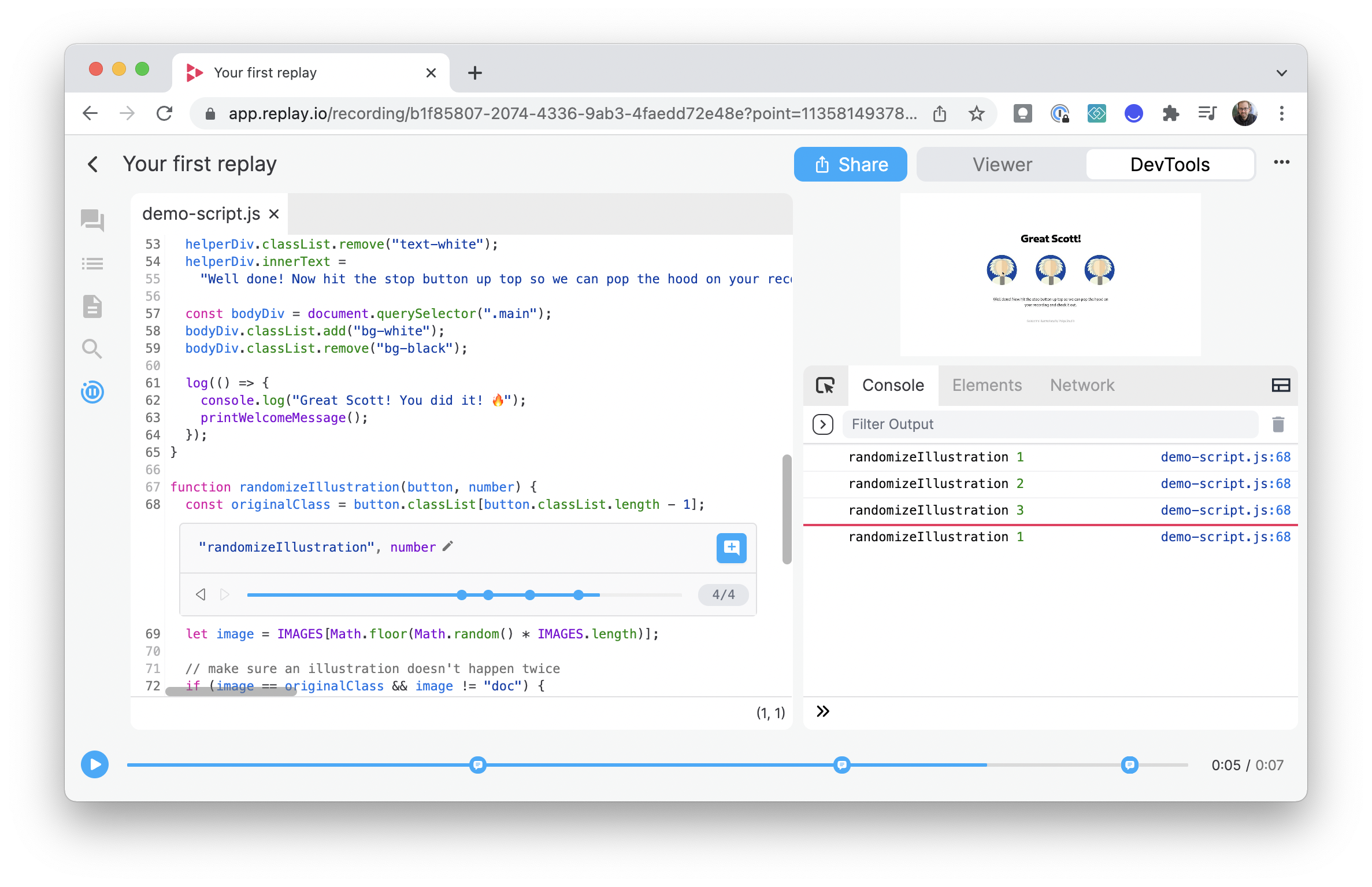1 / 38
Who Am I?
Senior Front-End Engineer at  Replay.io
Replay.io

Who Am I?
Answerer of Questions
@acemarke
Twitter, Reactiflux,
Reddit, HN
Reddit, HN
@markerikson
Stack Overflow, Github
Collector of Interesting Links
Who Am I?
Writer of Very Long Posts
Redux Maintainer
Redux Libraries
- Wrote React-Redux v7 and v8
- Directed React-Redux v7.1 hooks API
- Created Redux Toolkit
Who Am I?
That Guy With The Simpsons Avatar

Why Are We Having This Talk Anyway?
- Historically, the Redux team has not actively marketed or promoted Redux. Instead, we've spent most of our time telling people when they shouldn't use Redux!
- Redux has frequently been over-used or mis-used
- Our goal as maintainers is not "we want to win market share", but rather make Redux the best version of itself, so that if you choose to use it, it works well for you
- We still see constant questions of "When should I use Redux?", or "Redux vs $OTHER_TOOL"
Today's Goals
- Recap why Redux was created and what problems it's meant to solve
- Look at how the ecosystem has evolved
- Discuss some of the tradeoffs of using Redux
- Make the affirmative case for reasons to consider using Redux today
- Not going to directly compare Redux vs other libraries!
- Not going to dive into the details of Redux Toolkit
A Brief History of Redux: Precursors
- 2013: React released publicly
- 2014: Facebook announces the "Flux Architecture" pattern:
- A "one-way data flow" pattern that used "stores", a "dispatcher", and plain JS "action" objects to make update logic predictable
- Alternative to Backbone-style event emitters or AngularJS controllers
- Many of Redux's design decisions and naming are directly based on Flux!

A Brief History of Redux: Precursors
- 2014-15: the React community releases dozens of Flux-inspired libraries (aka "The Flux Wars")
- February 2015: Dan Abramov publishes "The Case for Flux", discussing how Flux solves several issues with Backbone apps (caching data, separating data updates, single source of truth)
Overall context
- Client-side state management (particularly keeping data in sync across the page)
- Understanding how state gets updated throughout the app
A Brief History of Redux: Creation
- May 2015: Dan Abramov publishes "The Evolution of Flux Frameworks" and starts work on Redux:
Philosophy and Design Goals
- You shouldn't need a book on functional programming to use Redux.
- Everything (
Storesreducers, Action Creators, config) is hot reloadable.- Efficiently subscribe to finer-grained updates than individual Stores.
- Provides hooks for powerful devtools (e.g. time travel, record/replay)
- Extension points so it's easy to support promises or generate constants outside the core.
A Brief History of Redux: Design Goals
In 2017, I expanded on that list of goals with my "Tao of Redux" blog posts that detailed the original intent and design approaches behind Redux:
Overall Concepts
- Redux was built as a Flux Architecture implementation
- State update maintainability is the main priority
- Action history should have semantic meaning
- Redux is intended to use Functional Programming principles
- Redux promotes testable code
- Update logic and data flow are explicit
A Brief History of Redux: Design Goals
In 2017, I expanded on that list of goals with my "Tao of Redux" blog posts that detailed the original intent and design approaches behind Redux:
API Design
- Reducer functions should be organized by state slice / domain
- Redux's APIs should be minimal
- Redux should be as extensible as possible
A Brief History of Redux: Release and Adoption
- June 2015: Dan Abramov and Andrew Clark collaborate on Redux development, rapidly iterating on the API design and terminology
- July 2015: Dan announces Redux in his talk "Hot Reloading with Time Travel" at React Europe 2015
- August 2015: Redux v1.0.0 is released
- 2016: Redux becomes a de-facto standard, and the community assumes "If you're using React, you must use Redux"
A Brief History of Redux: Ecosystem Evolution
- December 2016: React-Redux v5.0.0: perf-focused internal rewrite
- December 2018: React-Redux v6.0.0: used modern Context to work with future React architecture
A Brief History of Redux: Ecosystem Evolution
- March 2019: React 16.8 released with hooks
- April 2019: React-Redux v7.0.0: rewrite to use hooks internally
- June 2019: React-Redux v7.1.0 added the
useSelectorhooks API
const mapState = (state) => ({
todos: selectFilteredTodos(state)
})
const mapDispatch = (dispatch) => (
bindActionCreators({ addTodo, toggleTodo }, dispatch)
)
function TodoList({ todos, addTodo, toggleTodo }) {
// render
}
export default connect(mapState, mapDispatch)(TodoList);function TodoList() {
const todos = useSelector(selectFilteredTodos);
const dispatch = useDispatch();
// render
}A Brief History of Redux: Ecosystem Evolution
- October 2019: Redux Toolkit v1.0.0: modernized Redux usage
- June 2020: "Redux Essentials" tutorial: RTK as standard Redux
// Split across constants/todos.js, actions/todos.js, reducers/todos.js
export const ADD_TODO = 'ADD_TODO'
export const addTodo = (id, text) => ({
type: ADD_TODO, text, id
})
export default function todosReducer(state = initialState, action) {
switch (action.type) {
case ADD_TODO: {
return state.concat({
id: action.id, text: action.text, completed: false
})
}
}
}const todosSlice = createSlice({
name: "todos",
initialState: [],
reducers: {
addTodo: (state, action) => {
state.push(action.payload);
},
},
});
export const { addTodo } = todosSlice.actions;
export default todosSlice.reducer;A Brief History of Redux: Ecosystem Evolution
- June 2021: Redux Toolkit v1.6.0: new RTK Query data fetching layer
- April 2022: Redux v4.2.0: deprecated
createStore - December 2023: Redux Toolkit v2.0.0 and Redux v5.0.0: modernized packaging and improved API usage
Why Was Redux Adopted?
Historical Reasons
- Legacy context was broken for updates
- Best Flux implementation
- Hot reloading components didn't persist state
- "Thought leaders" ("of course you should use Redux if you're using React")
Why Was Redux Adopted?
Architecture
- Redux's FP principles matched React's mindset
- State not always tree-shaped / access values anywhere in the component tree
- Architectural approach to centralizing state and separating from the UI layer
Why Was Redux Adopted?
Predictability and Observability
- Consistent and understandable data flow pattern
- Easy to test reducers and selectors
- Time travel debugging and devtools
Why Was Redux Adopted?
Historical Reasons
Legacy context was broken for updatesBest Flux implementationHot reloading components didn't persist state"Thought leaders" ("of course you should use Redux if you're using React")
Architecture, Predictability, and Observability still matter!
How Has the React Ecosystem Changed?
A shift in problem space
- Original problem space:
- "client-side state management"
- "side effects" (including fetching data from the server)
- New problem space:
- "server state caching", with purpose-built tools (Apollo, React Query)
How Has the React Ecosystem Changed?
Pain points with early Redux
- Redux went from "the hot new thing" to "too heavy and boilerplatey"
- New generations of devs that never experienced the original problems Redux was meant to solve
How Has the React Ecosystem Changed?
Competing solutions for the same problem space
- SPA -> SSR/MPA:
- Less client-side state
- Server-side data fetching solutions (Next Pages/App routers, Remix, tRPC)
- Purpose-built data fetching libraries
- Nested state access:
- Modern React Context
- Other approaches: atoms, independent stores, signals
How Has Redux Changed?
Redux core -> Redux Toolkit
- Built-in methods for all common Redux tasks:
- store setup, writing reducers, and much more
- Solutions for "boilerplate":
- auto-generated action creators
- Immer for "mutating" updates
- TS inference
- Guard rails to prevent common mistakes:
- accidental mutations, broken selectors, invalid actions
How Has Redux Changed?
RTK Query for data fetching
- Purpose-built data fetching and caching layer
- Don't need to write manual data fetching code!
- Covers the main use case for "side effects"
- Don't need thunks / sagas / observables to fetch data!
- Handles most client-side data fetching automatically
- React hooks like
useGetPokemonQuery("pikachu")
- React hooks like
How Has Redux Changed?
React-Redux
connect -> hooks- Matches React's recommended usage patterns
- Simpler API with clearer readability and less "magic" from HOCs
- Better TS support
How Has Redux Changed?
Opinionated usage patterns
- "Style Guide" docs page with recommended patterns
- Standardized approaches for app setup and writing reducers via
createSlice - Tutorials that cover both "how" and "when / why" to use Redux
- Test Redux code "integrated" with the UI layer
Tradeoffs
As Dan Abramov said:
Redux is designed to answer the question: when does a given slice of state change, and where does the data come from? It's not designed to be the most performant, or the most concise way of writing updates. Its focus is on making the code predictable.
Tradeoffs
Flux-style indirection via "dispatching actions"
(instead of direct state mutations)
(instead of direct state mutations)
👍Pros
- Separates "what happened" from "how state updates"
- Provides a semantic history of user interactions
- Removes logic from the UI layer
- Updates follow a predictable sequence
- Scales better as app size grows
👍Cons
- More code than just
state.value = 123 - Have to trace a couple steps to get from dispatch to reducer
Tradeoffs
Single global centralized store
👍Pros
- One place to look for global app state
- Can access data anywhere it's needed
- Enables viewing state history in the DevTools
- App logic based on actions (logging, middleware)
👍Cons
- Can be abused ("put everything in Redux")
- Not well suited for lots of rapid updates
- Accessing the store in non-React files is awkward
Tradeoffs
State updates via reducers and "slices"
👍Pros
- More of your app logic is predictable pure functions
- Easy to test in isolation
- Always know where to look to see what state exists and what updates can happen
👍Cons
- Historically, immutable updates were verbose and accidental mutations were common (but both fixed by Immer!)
- Organizing state + logic by slices doesn't always split cleanly
Tradeoffs
Manage state as plain JS objects and values
👍Pros
- Serialization enables DevTools and usage like persistence
- Matches React's usage expectations (plain data, immutable updates)
👍Cons
- Some operations might be easier with non-plain values
Date,Map,Set
Benefits and Reasons to Use Redux Today
👍 Provides a consistent architectural pattern for apps
- Separation of app logic from the UI
- Predictable update data flow
- Obvious place to look for state definitions and updates
👍 Better understanding of what's happening in the app
- Semantic history via action names
- Redux DevTools show actions, state diffs and results, and stacks
Benefits and Reasons to Use Redux Today
👍 Widely used
- Still the most widely used client side state management library for React apps
- Well known and understood usage patterns
👍 Well documented
- Excellent tutorials
- Thorough docs covering concepts, usage, and APIs
👍 (Currently) Better update behavior than React Context
- Able to select individual values from state in components
Benefits and Reasons to Use Redux Today
👍 Redux Toolkit provides built-in tools for standard use cases
- Basic: store setup, creating reducers
- Advanced: data normalization, reactive logic
👍 RTK Query data fetching and caching layer
- Abstracts the entire process of fetching and caching server state
- Manages cache lifetimes
- Provides React hooks for data fetching, but works outside React too
- Support for OpenAPI codegen
Benefits and Reasons to Use Redux Today
👍 Works great with TypeScript
- Fully designed for a great TS developer experience
- Straightforward TS usage
- We put in lots of work for our internal TS types around inference, so your app types are simple!
👍 Designed to work with React, but still UI-agnostic
- Core logic works with any UI layer, or outside a UI
- Runs in any JS environment
More Information
- Redux History and Design
- Modern Redux